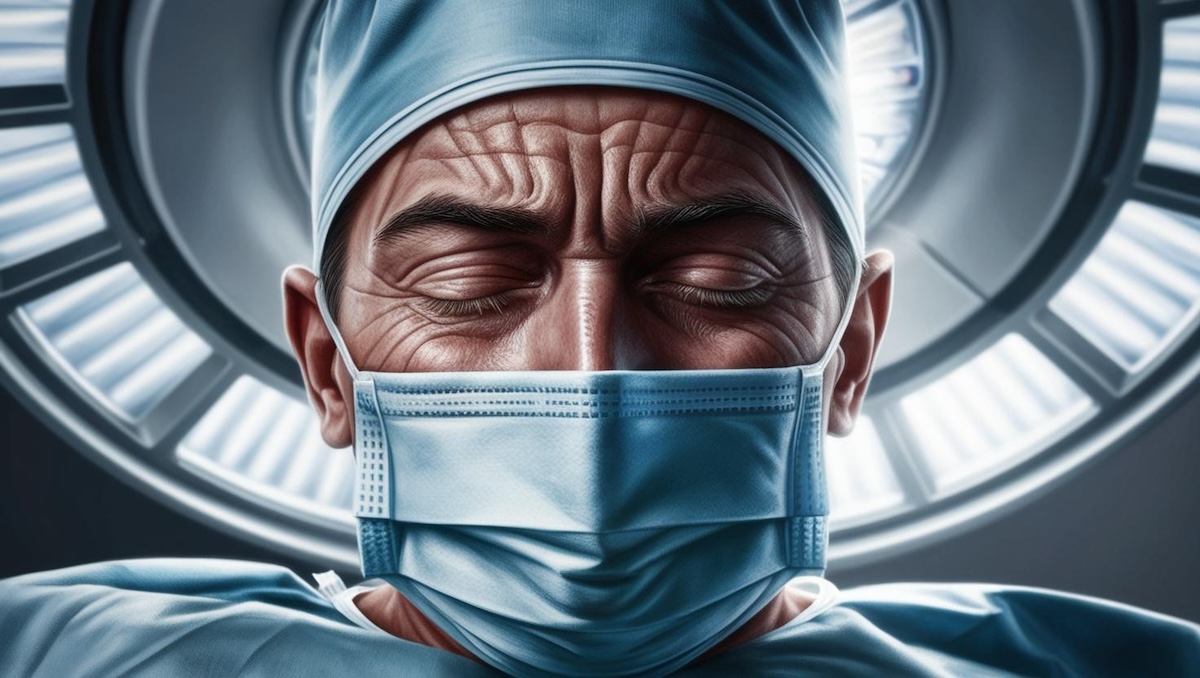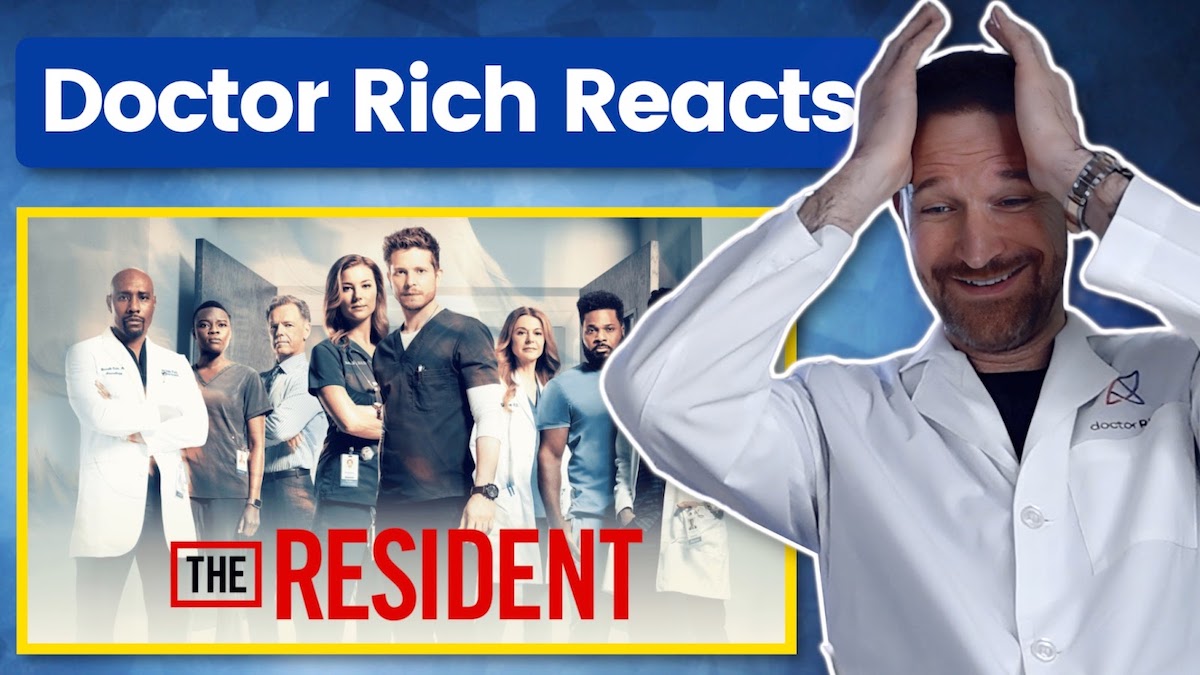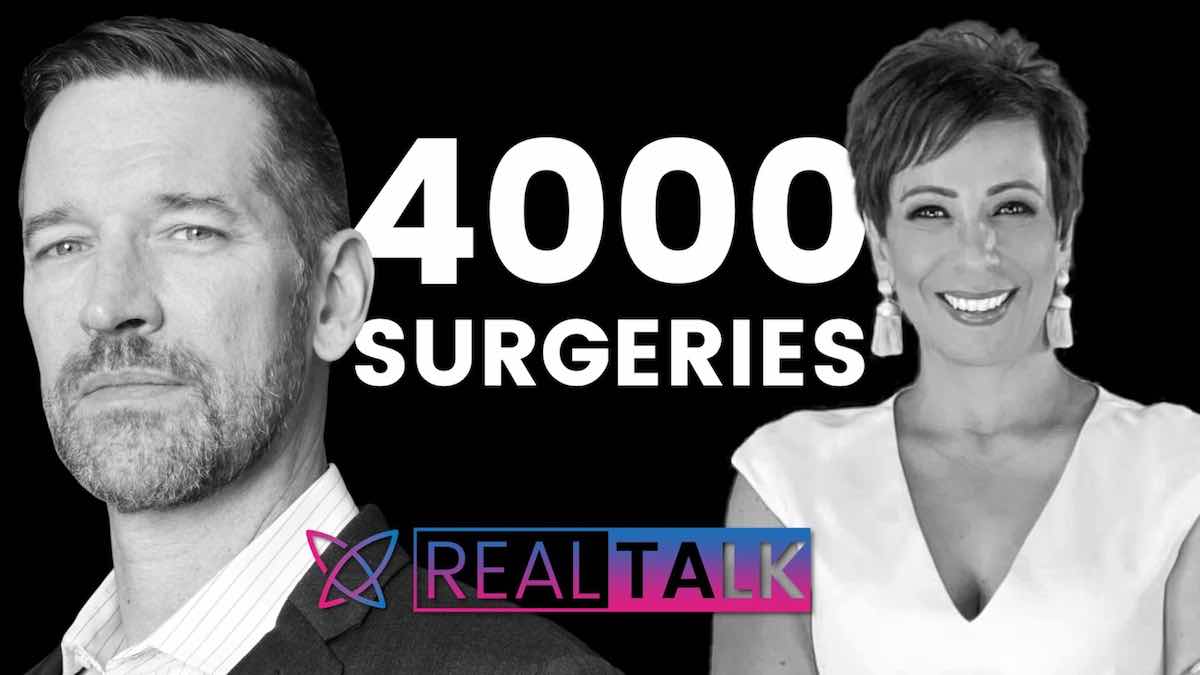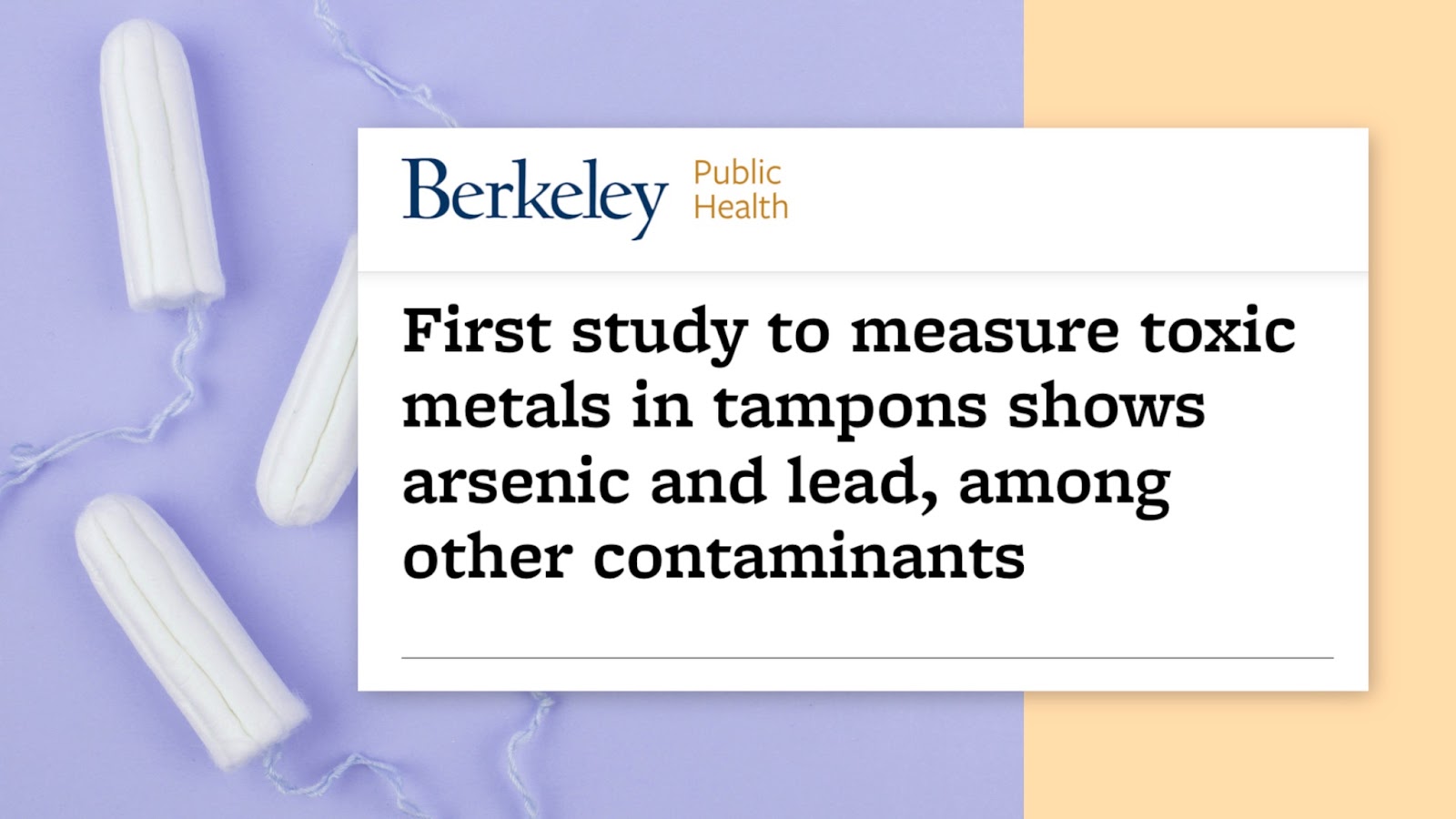In this corner of YouTube, we’re all about empowering and supporting women with information and educational content. I had the privilege of talking with Gin Demelo of Gin Amber Beauty about skincare, overcoming adversity, holistic health, and the power of helping others. Let’s get started!
Don’t have time to read this post? Watch the video here instead!
Doctor Rich:
So our channel is the Doctor Rich Channel. I decided two years ago that (as a physician, a women’s healthcare professional) in the course of my lifetime, I could probably directly affect 10,000 lives — either through surgery or clinical work and stuff like that. But there’s no limit to the number of lives you can affect, both with surgical education (where I go teach another surgeon and they affect so many lives) and through medical education. And then the idea behind our channel was, “Let’s take practical knowledge and our stuff that may be difficult and demystify it, simplify it, and put it out there for consumption.” And that also matches up well with my first love — which was acting! And so I get to do some of that. We post some of those.
Gin:
Look at that! You get to do everything in one now!
Doctor Rich:
So how about you? I wanted to have you on because you are a very successful female role model and business entrepreneur, and I wanted to have that for my channel for people to look up to you. There are people who maybe are interested in starting their own business and would like to look to someone who’s been successful at that, people who’d like to know what were your steps, what were your challenges, what would your advice be for someone who’s a strong female lead who’s looking to have a bigger leadership role (either in their own company, creating a new company, being an entrepreneur, or something like that). What got you started?
Gin:
Interesting question!
So I will say — nothing was easy, and still there are always challenges. There’s still so much growth that I learn absolutely every single day. And I think the beginning was (for me) really painful, actually! I went through a divorce, and I lost money that I invested in the house and left everything to him. And I had this general review to “baby” — like a “newborn baby business” that I didn’t know what to do with and didn’t know what’s going to happen! I did not make much money the very first year — nobody starts with millions and millions of dollars! And I was diagnosed with Hashimoto’s, with pre-diabetes, leaky gut, all the anxiety and a bunch of health stuff. And I had nothing to lose at that point. And I had always wanted to impact a lot of people’s lives, like you, affecting a certain amount of patients.
I was an esthetician, and I was like, “Okay, how many clients can I help?” Then I started filming YouTube videos that I was thinking, “I can affect thousands of people — thousands of women that stay at home — especially those women that want to have affordable skincare routines.” Because if you go to an esthetician’s office or a dermatologist for a regular hydration facial, they’re going to charge you, like, 700 bucks — when at home, you can spend 700 bucks and buy skincare for the year. You can do everything at home and have the same results.
So I wanted to share my knowledge. I was always passionate about skin. I was always interested in biology and anatomy class in school, and I started going to skincare seminars when I was twelve years old. So I’ve spent over twenty years learning about the skin and there’s still so much to learn! But what I have is a passion to help people to feel better, especially women with acne, or premature aging, or rosacea.
I had rosacea myself, which is an autoimmune disorder. But I’m completely healed. I don’t have makeup right now — I only have sunscreen on my face. And as you see, I don’t have any redness left. And I manage.
Something that I believe is that God (or The Universe, whatever you call this higher energy in your life), whatever brings challenges — I take those challenges and I turn into something good. That’s what drives me. And when I receive news from my clients that they’ve had rosacea for twenty years and now suddenly they don’t have it — and they send me thank you messages, letters, videos — it makes my heart melt. I just feel so happy! That’s my main passion in life. Help others to feel better.
Doctor Rich:
That’s fantastic!
And looking through your channel, I see that you have a product line; you have different aesthetic products, cosmetic products, you have a dermaroller — which came first? Did YouTube come first, or did your products come first?
Gin:
YouTube came first. Social media came first.
I never thought I was going to launch my products, but I was promoting a whole bunch of skincare products, and (in my heart) I didn’t know if these products were good or not good. Would someone get breakout rashes or sensitive skin?
And even though — if you know skincare in the United States, it’s not very regulated. The FDA is not standing there and looking at what you’re doing in your kitchen sink. So my followers (I believe when I hit 20,000 followers) just started telling me, “Hey, why don’t you have your own line? I want to buy from you. You know, YOUR stuff.” I was like, “I don’t know anything about business. I knew about ingredients (what’s good for the skin), but I didn’t know how to formulate or how to create the formulas. But you know — when you want it, everything is possible. I learned, and I now formulate my own creams and serums, and I started studying chemistry.
Doctor Rich:
Wow!
Gin:
I know! I just love it. The dermarollers are best-selling products, and people just love them because they see the biggest change in their skin. That surprised me in the beginning, but then I just got used to it. So whatever they like, I’m happy.
Doctor Rich:
Who would you say has been your biggest mentor (or mentors) during this process — this journey where (I mean obviously like you yourself) I think we’re all products of our own tragedies. We have things and challenges that occur in life — and you can either succumb to those challenges or you can get yourself up and rise to the occasion, which you clearly have. But who else did you look to help guide you on that path?
Gin:
So throughout the years, I did have a lot of business coaches or just people who were inspiring. But what I will say, it wasn’t a person that inspired and made me move forward. It was actually problems that I faced — and these problems that I faced, challenges I had, I did not give up. I always wanted to find a way. I believe if you have a problem on your table (and YOU do have a patient on the table!), you just can’t give up! Like from emergency surgery, you have to fix the situation! There’s no way that you can just leave your patient bleeding! So it’s kind of the same. If I have a challenge, I’m like, “I will fix that challenge! I will make it the best I can.” When I had cystic acne, and when I had rosacea, I was freaking out so much. But I was like, “I’m going to do so much research. I’m going to find the people that already fixed it, and I’m going to model them and do the same exact thing that they did.” If it worked for them, maybe it’s going to work for me. And it worked.
Doctor Rich:
Yeah, I think that’s fantastic that your driving force is to allow (or provide) people with very cost-effective solutions to these problems. Because let’s face it, the healthcare system has challenges — and many patients just can’t afford to go to the doctor, and they’re going to suffer. Like, if they have a stroke, or if they have some kind of a bleeding disorder or something that is emergent (or maybe diabetes), they’re going to see their doctor, maybe diabetes. But maybe they consider skincare not as important or something that is almost like a luxury. And so I think that’s very admirable that you’re giving people this alternative, this option to be able to do more of a cost-effective home-care solution.
Gin:
When I was at a conference just a month ago, there were two ladies who are PhD scientists of skin. They both own a skincare brand, One Skin. And by the way, next week I’m going to do a podcast with her.
Doctor Rich:
Oh, nice!
Gin:
You’ll have to check it out later! So what the research that they did showed is actually the health of your skin (when you take care of your skin’s microbiome) actually directly affects your gut flora. We usually think about it kind of the reverse — if you’re eating healthy, you’re going to have healthy skin. And yes, that’s true. But we never think about how healthy your skin’s microbiome is — because skin is so big, it’s so huge! It affects everything. So actually they did this research that the skin microbiome, the healthier skin’s microbiome, is the more you take care of your skin (entire body, not only face), the healthier your gut system is going to be.
Doctor Rich:
Makes sense! But like I said, a lot of people kind of consider it almost like an afterthought or a luxury — and they’re going to take care of other things first. But it is critically important — it’s the biggest organ in the body. I don’t know that part of medicine, I don’t do dermatology, or plastic surgery, or cosmetics. So it’s not a field that I’m super familiar with, but whatever you were doing was working. If you have autoimmune conditions and you found a way to cure that, that’s fantastic.
And just for the audience, what things were you able to do that helped you with those skin conditions that personally helped YOU?
Gin:
Yeah, I will say first thing to help with any skin, like chronic skin conditions like acne, rosacea, psoriasis, eczema, that many people believe traditional Western doctors say isn’t curable (because this is what I was told by dermatologists. They said you can’t cure it, you can make it a little bit better) can disappear from your life.
With the Hashimoto’s, I went to probably eight hundred endocrinologists, and they said, “You’re just going to have it for life, take medicine and get the hell out of here!” But it’s been four years since I reversed it, and I’m a very happy, very healthy person with a lot of energy. So with skin, you have to believe that you can actually reverse it because probably 95% of the doctors (if you go to a random hospital or dermatologist’s office), they’re going to say you can’t reverse it.
And they most likely will prescribe you some antibiotics, some antihistamines, and stuff like this. They’re going to try — in some way — to prescribe you something. This is how medicine works in the Western world. So the first thing is to believe it. Second thing is to address what you eat. Avoid seed oils, processed foods. Don’t eat out, eat at home. Set a 90-day window that you’re going to only cook at home, eat a lot of pasture-raised animal fats, foods with animal organs. That is a really, really big nourishment for our body. Now we’ve been told fat is bad. But not every fat is bad. Seed oil is bad. But good fats are good fats. Consume some sort of probiotics that is nourishing our gut’s flora. I personally love sauerkraut because it’s full of good bacteria that is really, really helpful.
So this balance of the bacteria and our gut was causing — there’s a collation between the skin and gut. Skin and gut exercise — I don’t know if you’ve heard about that. So that’s a big thing.
And then another thing that I started doing is meditation and really relaxing — addressing your adrenals. Most of the people that I know in my practice for many years, most of the people with acne, with all chronic skin issues, they’re super hyper people. They’re just on fire all the time! Do, do, do! Go, go, go! Relax, chill out, meditate, go do yoga in the park, enjoy nature, really slow down and be present with yourself. So that’s just a couple of things that help. And from the skin point-of-view, not to overdo it on your skin. Everybody is going to try to push skincare brands; you have to buy a twelve-step skincare routine (or a twenty-step skincare routine!). The less you do for your skin, the better. The less active like vitamin C, retools, glycolic acid, salicylic acid. The less you use of those things, the better. And always protect your skin with mineral sunscreen.
Doctor Rich:
It’s interesting because probably a lot of doctors (but I specifically) recommend probiotics and healthy eating: less processed foods, a balance in fats, carbs, and protein… 3, 6, 9 amino acids, medium-chain triglycerides… and meditation. And not for skin, but just in general. Those are just healthy habits — but, so there’s benefits for the skin as well. So that’s good!
Gin:
Benefits for the skin as well! Yeah, what’s good for the body is good for the skin. The skin is a part of the body.
Doctor Rich:
And then the power of the mind — you’ve got to believe you can do it, and that makes it possible.
Gin:
What about your life? Why do you do what you do?
Doctor Rich:
So I guess I’ve run from scarcity my whole life. My parents got divorced when I was twelve, and we didn’t have anything — and I had a, very much of a scarcity mindset. And then no matter how I worked, somehow it was all going to get taken away. So I kind of had to go through a lot of time to improve on that and move into more of an abundance mindset. And it’s a constant process. You always have to be attentive to your thoughts and guard the door to your mind and make sure you’re having good thoughts. But I was good in biology, and I wanted to have a career where I could help people. I probably would’ve just gone into family practice. That was the rotation that I liked in medical school. And then I did surgery, and I was, like, I’ve GOT to do surgery! This is too cool to NOT do surgery.
And that was another “lemony” belief. I was like, “How am I going to be a surgeon?” I mean, surgeons are these mythical creatures. You see them on TV or in movies. And I mean, there were no doctors in my family when I was growing up. And so I rotated through OB/GYN, and that incorporated both the idea of a longitudinal relationship with your patients — being able to see people for your entire career — as opposed to just general surgery where it’s kind of like you see that event and then they’re out of your life forever. So you get to combine that, and there’s a surgical aspect. And then I was able to go into a subspecialty — urogynecology or prolapse incontinence. That is primarily surgical, but we do have many of our patients that we continue to see for years. So it’s, I think, a very noble thing to have that purpose in your life — that every day you get up and you’re helping people. And I think you can identify with that in many ways. If you’re an attorney that helps people, if you’re an accountant…
But truly touching lives, like waking up and changing the quality of someone’s life from one day to the next permanently through — I’d say primarily surgical interventions, but medical things. And sometimes just through some of the things we’ve been talking about: changes in diet and mindfulness and stuff like that. And perhaps we should do more of that! But as we talked about, the healthcare system has its own challenges, and people are kind of driven into doing or practicing in a certain way. I think there are outcomes that are good — but could be better, or maybe could be augmented, I guess I could say.
And at the end of the day, we always want to hold ourselves to practice evidence-based medicine — things that have been studied and have shown to provide a benefit, but there’s also a lot of room to study other things that are not part of Western medicine — or study more thoroughly, anyway. Things such as acupuncture…
And this is just one example — but mindfulness. And there’s definitely been research on that, but I think there’s a lot more room for that kind of stuff.
Gin:
Acupuncture is amazing! Last year after we came back from Maldives — did you go to Maldives?
Doctor Rich:
Yeah.
Gin:
You did? Yeah! So after I came back from Maldive, I was diagnosed with PCOS and I did a lot of research and I went to this… I don’t know…holistic functional medicine clinic. And I did, I don’t know how many…maybe ten sessions of acupuncture, and everything was gone. Everything was gone. All the cysts, all the fibroids melted. It’s all good.
Doctor Rich:
Wow. Yeah, and there’s definitely research in certain areas — and of course they have to have a relevant comparator — so for endometriosis for example, that compared to medicine or surgery or something. And in the areas that it’s been studied (at least that I’m aware of in women’s health), the data is not great — but it doesn’t mean that it doesn’t work for an individual.
Gin:
Yeah. What works for me might not work for everybody.
Doctor Rich:
Also, I would always advise my patients because they’re like, “Well, what about these complementing and alternative therapies?” And I always say, “This is the, if I know it, this is the data on those things. But look, it’s not harmful, and it definitely may help you.”
And so a lot of patients, again, looking at dietary changes and really just daily habits, mindfulness and these things, could complement some of the other things. Because the last thing anybody wants to hear is, like, “Okay, take this pill or have this surgery.” Well wait a minute — there’s got to be something else there. I always tell my patients, “Look, there’s no harm. Definitely try that first, and see how much benefit you can get. And then if not, we can go this other route.”
So the challenge is, a lot of these patients (by the time they see me), they’ve already had all those things, and it’s like, I just need this and so…
Gin:
Fix me!
Doctor Rich:
Yeah. They’re desperate for a solution, and surgery’s never the first option. But in a lot of cases it’s the definitive option, and patients still want better. So the results are there. I mean, you’ve got the world’s perfect skin, so whatever you’re doing, you’re like the living proof!
Gin:
Thank you. Thank you. I appreciate you.
Doctor Rich:
I don’t want to keep you forever. I really appreciate you taking a few minutes to come. Sorry about the late start, but it’s okay. Hopefully this will be the first of many, and maybe I’ll get an interview on your channel one day.
Gin:
Yeah, I will invite you for sure. Thanks, Rich. Take care. Bye-bye.
Doctor Rich:
Well, thanks for joining us for this candid conversation with Gin Demelo (Gin Amber Aesthetics). I think this, there’s great advice for practical, aesthetic, and beauty information. If you enjoyed this talk, please share with a friend, and you can check out the link to a product line in the description below.
Gin Amber Beauty: https://ginamber.com/




